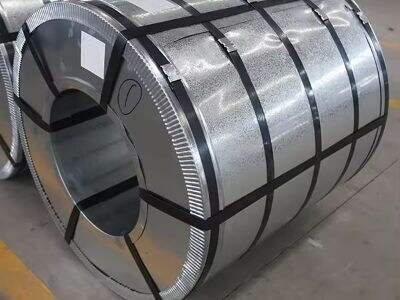एल्यूमिनियम एक बहुत हल्की और लचीली धातु है जिसका उपयोग आमतौर पर कई घरेलू सामान बनाने में किया जाता है। एल्यूमिनियम का उपयोग, उदाहरण के लिए, सोडा कैन, रसोई फॉइल, और भी हवाई जहाज़ के कुछ हिस्सों में किया जाता है जो उन्हें उड़ान भरने में मदद करते हैं। स्टील भी एक भारी और सघन सामग्री है। इसका उपयोग कारों, इमारतों, पुलों आदि जैसे महत्वपूर्ण घटकों को बनाने के लिए किया जाता है। इनमें से प्रत्येक सामग्री के अपने फायदे और नुकसान हैं, और इसलिए आप जो परियोजना कर रहे हैं, उसके लिए सही सामग्री का चुनाव करना बेहद महत्वपूर्ण है।
एल्यूमिनियम और स्टील की तुलना
कई उद्योगों में सबसे अधिक उपयोग किए जाने वाले दो सामग्री एल्यूमिनियम और स्टील हैं। हालाँकि, इन दोनों में से किसी एक के चयन की बात आने पर, आपको कुछ महत्वपूर्ण पहलुओं पर विचार करना चाहिए। एल्यूमिनियम का एक बड़ा लाभ यह है कि यह बेहद हल्का होता है, जो ऐसे अनुप्रयोगों के लिए एक अच्छा विकल्प है जहाँ वजन महत्वपूर्ण होता है। उदाहरण के लिए, एयरोस्पेस क्षेत्र में, विमानों को अच्छे प्रदर्शन के लिए जितना संभव हो सके हल्का होना चाहिए। स्टील आमतौर पर बहुत मजबूत और स्थायी होता है, और इसलिए शक्तिशाली कारों या ऊँची इमारतों जैसे भारी कार्यों में उपयोग किया जाता है।
एल्यूमिनियम या स्टील में से किसकी कीमत अधिक है?
लागत की दृष्टि से, एल्युमिनियम आमतौर पर स्टील से अधिक महंगा होता है। लेकिन चूंकि एल्युमिनियम हल्का होता है, इससे शिपिंग और परिवहन में लागत बचत हो सकती है। यदि आपके पास बहुत सारी सामग्री ले जानी है, तो लंबे समय में एल्युमिनियम कम खर्चीला होगा; इसका अर्थ है सामग्री की लागत बनाम उन्हें हटाने की लागत। इसके अलावा एल्युमिनियम जंग नहीं लगता, इसलिए वर्षों बाद भी इसकी देखभाल कम होती है। इससे भविष्य में मरम्मत पर धन बच सकता है। दूसरी ओर, स्टील शुरूआत में अधिक किफायती स्टील विकल्प हो सकता है, लेकिन बाद में अधिक देखभाल और रखरखाव की आवश्यकता हो सकती है, जिससे अतिरिक्त या अधिक लागतें आ सकती हैं।
एल्युमिनियम के गुण
एल्युमिनियम में कई उत्कृष्ट विशेषताएं होती हैं, जिसके कारण इस धातु का उपयोग विभिन्न उद्योगों में बहुतायत में किया जाता है। एल्युमिनियम की सबसे महत्वपूर्ण विशेषताओं में से एक यह है कि यह अत्यधिक हल्का होता है – यह बात विमानन उद्योग जैसे विविध क्षेत्रों में बहुत महत्वपूर्ण है, जहां प्रत्येक औंस का बड़ा अंतर पड़ता है। इसकी हल्कापन विमानों को अधिक ऊर्जा-कुशलता से उड़ने में मदद करता है। एल्युमिनियम जंग रोधी भी होता है, इसलिए यह आसानी से नहीं जंग लगता। इसे बाहरी उपयोग के लिए अत्यंत स्थायी विकल्प बनाता है, जैसे निर्माण या बाहरी फर्नीचर में। साथ ही, एल्युमिनियम को पुनर्चक्रित किया जा सकता है, इसलिए इसे पिघलाकर नए उत्पादों में बदला जा सकता है। न केवल यह पर्यावरण के लिए अच्छा है, यह कचरा कम करने में भी मदद करता है।
वर्जिन बनाम पुनर्चक्रित एल्युमिनियम और स्टील।
स्टील और एल्युमिनियम के गुणों की तुलना। एल्युमिनियम हल्का होता है और जंग नहीं लगता, इसलिए उन सभी जगहों पर इसका उपयोग किया जाता है जहां हल्कापन और स्थायित्व दोनों महत्वपूर्ण भूमिका निभाते हैं। मौसम के संपर्क में आने वाली चीजों के लिए इसका उपयोग अक्सर किया जाता है। दूसरी ओर, स्टील को अपनी शक्ति और लंबे समय तक चलने वाले गुणों के लिए जाना जाता है, जो इसे भारी उपयोग के लिए आदर्श बनाता है। जबकि एल्युमिनियम और स्टील दोनों के ही व्यापार में महत्वपूर्ण फायदे और नुकसान हैं, आपको ध्यान से चुनना होगा कि आपके अनुप्रयोग में कौन सबसे अच्छा काम करेगा।
मैं यह भी सुनिश्चित करना पसंद करूंगा कि यदि मैं डीलर को बुलाने का फैसला करूं, तो मेरे पास उन टिकटों की एक अच्छी श्रृंखला हो जो मुझे जरूरत पड़ने पर उपलब्ध हो।
एल्युमिनियम और स्टील में चयन के समय विचार करने योग्य बातें: सामग्री का वजन एक महत्वपूर्ण कारक है। यदि आपके प्रोजेक्ट के लिए वजन एक बड़ी चिंता का विषय है, तो एल्युमिनियम अच्छा विकल्प हो सकता है। लेकिन यदि आप वजन की तुलना में मजबूती को प्राथमिकता देते हैं, तो स्टील अधिक उपयुक्त हो सकती है। प्रत्येक सामग्री की लागत भी आकलन के लिए एक महत्वपूर्ण कारक है। केवल शुरुआती कीमत के बारे में नहीं सोचें, बल्कि इस बात पर भी ध्यान दें कि समय के साथ प्रत्येक सामग्री के लिए कितनी देखभाल और रखरखाव की आवश्यकता होगी। इन कारकों के बारे में सावधानीपूर्वक सोचने के बाद आप यह निर्णय ले सकते हैं कि कौन-सी सामग्री आपके प्रोजेक्ट के लिए सबसे उपयुक्त है।
हालाँकि एल्युमिनियम और स्टील दोनों के ही अपने फायदे और सीमाएँ हैं। जब आपके पास दोनों ही सामग्री उपलब्ध हों, तो आपको दोनों सामग्रियों की विशेष विशेषताओं के बारे में जानना चाहिए ताकि आप अपने प्रोजेक्ट की आवश्यकताओं के अनुसार उचित चयन कर सकें। चाहे आप किसी भी सामग्री का चयन करें, ROGO आपकी सभी आवश्यकताओं के अनुरूप उच्चतम गुणवत्ता वाली सामग्री उपलब्ध कराने के लिए तैयार है, जिससे आपके प्रोजेक्ट की सफलता सुनिश्चित हो सके।

